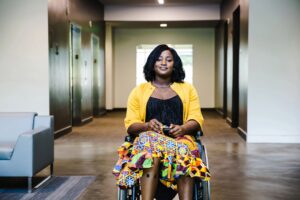In a world that celebrates diversity and cultural richness, the importance of promoting health discussions in culturally sensitive ways cannot be overstated. Every individual’s journey to well-being is uniquely influenced by their cultural background, beliefs, and values. To truly make a difference in public health and healthcare outcomes, it’s essential to break down barriers and create spaces where open conversations about health can take place without disregarding cultural nuances.
Understanding Cultural Sensitivity in Health Discussions
Cultural sensitivity involves recognizing and respecting the diverse beliefs, practices, and values that shape individuals’ lives. When it comes to health discussions, taking cultural sensitivity into account means acknowledging that perceptions of health, illness, and treatment can vary widely across different cultures. By understanding these differences, healthcare professionals, educators, and advocates can better tailor their communication approaches and strategies.
Breaking Barriers Through Empathy
Promoting health discussions in culturally sensitive ways requires empathy as its cornerstone. By stepping into the shoes of individuals from diverse backgrounds, we can begin to understand their unique perspectives and concerns. This empathy enables us to ask questions, listen actively, and learn about their health-related experiences without judgment.
Cultural Competence in Healthcare
Cultural competence among healthcare providers is a vital component of fostering culturally sensitive health discussions. This competence involves gaining knowledge about various cultures, customs, and traditions, as well as developing the skills to communicate effectively with individuals from different backgrounds. Healthcare professionals who are culturally competent can establish trust and rapport with their patients, leading to better health outcomes.
Creating Inclusive Health Education Programs
Educational initiatives focused on health should embrace inclusivity. Whether in schools, community centers, or online platforms, these programs should be designed with cultural diversity in mind. Integrating culturally relevant examples, stories, and visuals can engage individuals and encourage them to actively participate in health discussions. By making the content relatable, educational efforts become more effective and impactful.
Promoting Dialogue, Not Monologue
Effective health discussions involve a two-way exchange of information, where individuals feel comfortable sharing their experiences and concerns. By promoting open dialogue instead of a one-sided monologue, we create an environment where cultural insights can be shared, misconceptions can be clarified, and diverse health perspectives can be understood.
Utilizing Language and Communication Strategies
Language plays a significant role in breaking down barriers. Providing health information in multiple languages and using clear, jargon-free communication helps ensure that individuals from different cultural backgrounds can access and understand critical health information. This practice shows respect for diverse linguistic preferences and levels of proficiency.
Collaborative Approach to Policy and Advocacy
Efforts to promote culturally sensitive health discussions should extend beyond individual interactions to policy and advocacy levels. Collaborative partnerships involving healthcare providers, community leaders, policymakers, and cultural experts can help shape policies that address diverse health needs. Advocacy efforts can spotlight the importance of cultural sensitivity in healthcare and encourage the development of inclusive health systems.
In conclusion, breaking barriers and promoting health discussions in culturally sensitive ways is a collective endeavor that benefits individuals, communities, and societies at large. By embracing empathy, cultural competence, inclusive education, open dialogue, and effective communication strategies, we can bridge the gap between diverse cultural backgrounds and the pursuit of better health for all.


